
June 30 – UGP conducted several surveys among its members on the topic of the justice system. The results are devastating, but unfortunately, expected. The slow and inefficient judicial system is also, according to entrepreneurs, one of the main problems of Croatian society. The UGP believes that legal reform should be one of the first reforms of the new Government.
One of the UGP’s postulates is #morejustice, and one of the reforms we requested from the Croatian Government applies to the Croatian justice system. Even though the trust in the justice system is generally on a low level, it seems like it is also a more significant stumbling block for entrepreneurs and a barrier in the business.
For this reason, we asked entrepreneurs more questions to process the topic better and try to find out where all the reasons for such deep dissatisfaction lie.
The first question was, “What is the role of the judicial system in the exercise of entrepreneurs’ rights?” Only 0.5% of respondents think that the system helps significantly, as it should. The same number of respondents think exactly the opposite: the justice system substantially makes things worse, 0.5%. Very few, 1.4% think that the justice system moderately helps, making the overall positive perception under 2%. 17.7% think that the justice system does not help entrepreneurs. The largest category, 80% of respondents say, “Come on, please…” which suggests that the condition is so bad that there is no point in answering the question on any positive impact. This level of resignation is the first sign to raise the alarm.

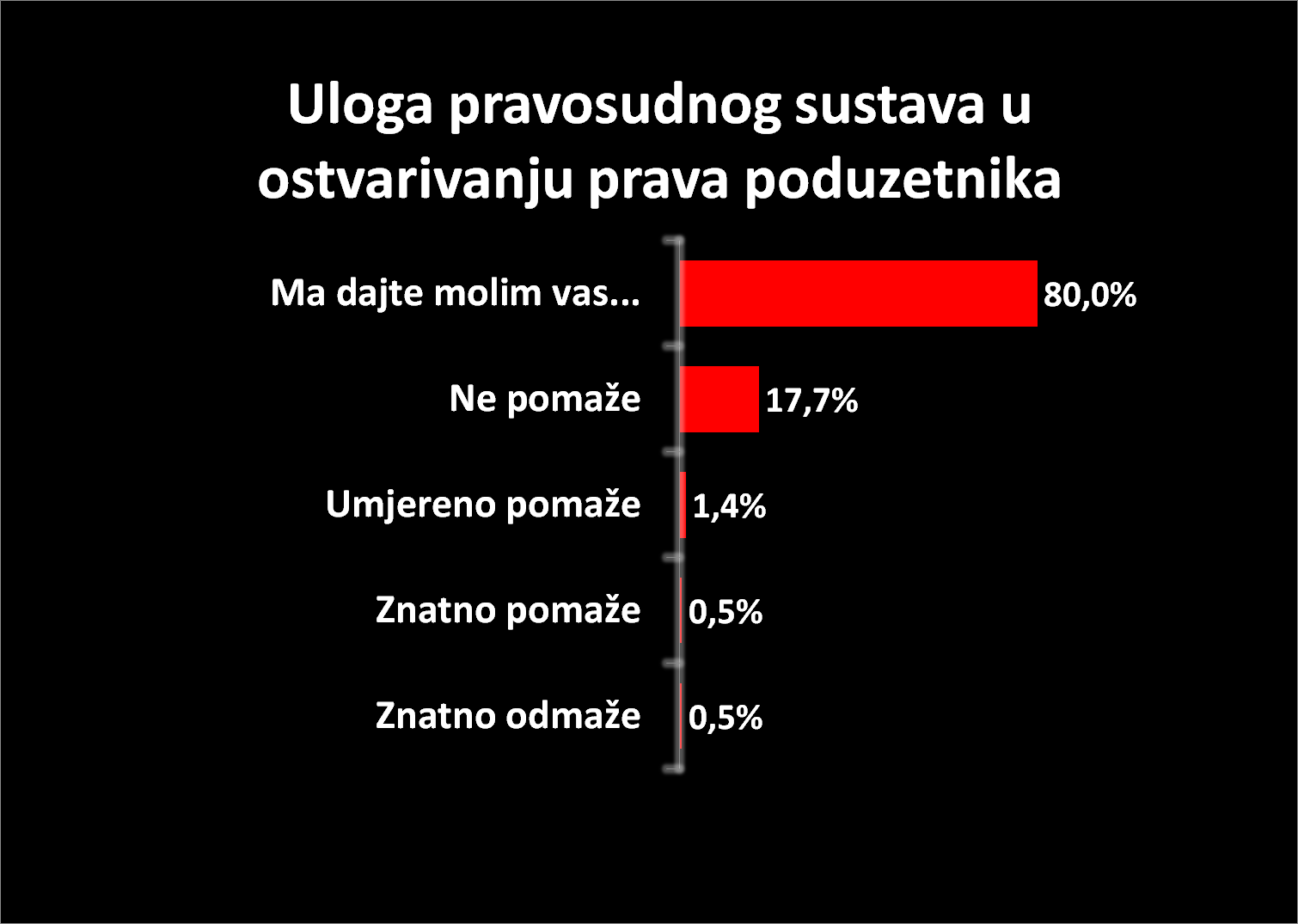
The second question was about the length of litigations, given that both the viability of the business and the survival of the firm can often depend on it. We received responses about the duration of legal proceedings that our members conducted or are conducting: only 2.2% say the proceedings lasted under two years, which we consider a reasonable deadline. Another 5.9% said that the procedures lasted for a somewhat acceptable 2 to 5 years. The most significant number of votes — 47.8% — went to the answer “more than five years.” This time range doesn’t make much sense in the business context. Up to 33% say that the procedures lasted more than ten years, which is entirely unacceptable.
The latest information is that almost 11% say they had or still have proceedings going on for more than 20 years! We don’t even know how to comment on this last part.
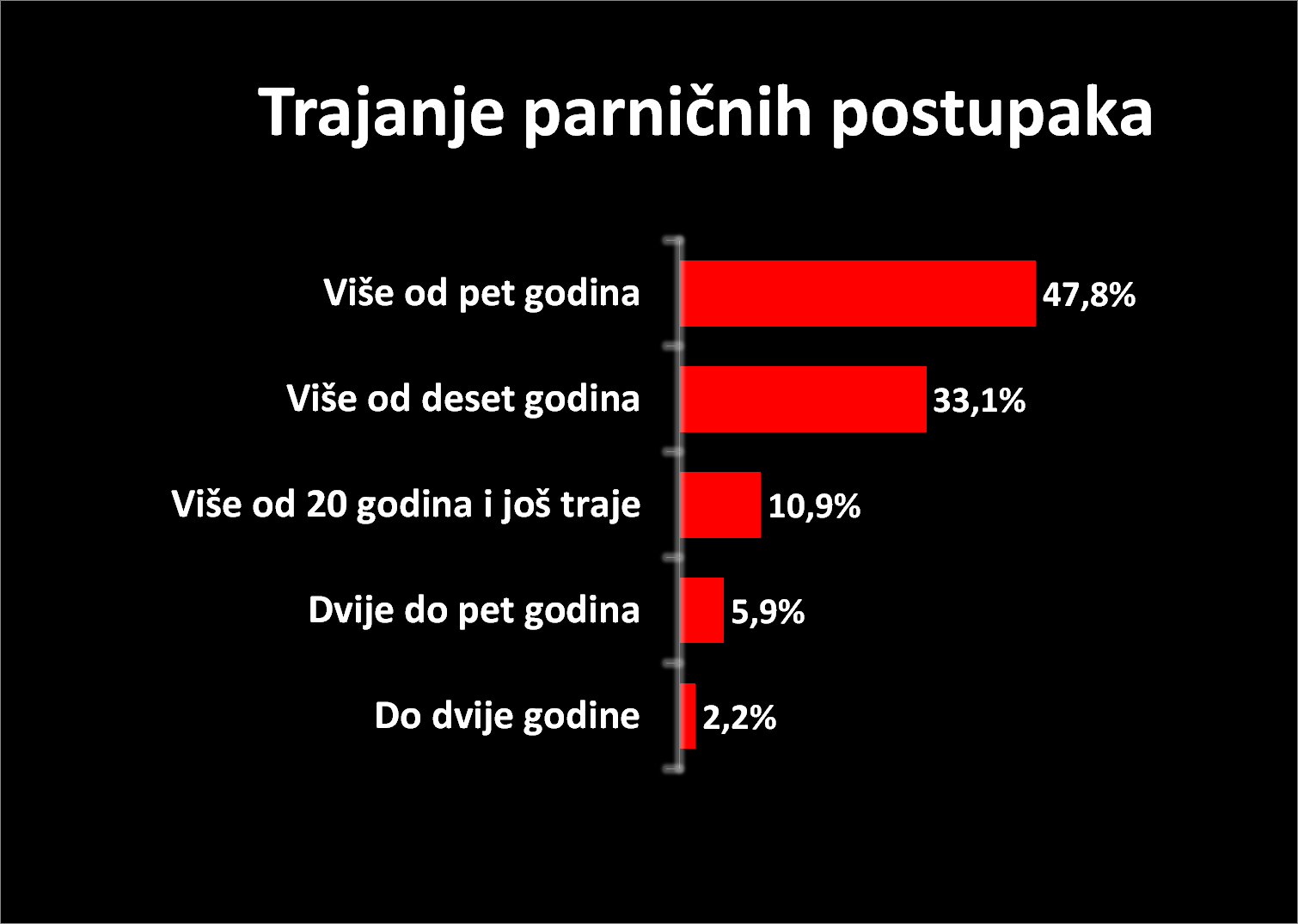
Part of the reason for the great disappointment in the justice system is probably due to the difference between expectations and the reality of the speed and effectiveness of the system. Answers to the question, “How long, in your opinion, can a court proceeding last?” For a reasonable timeline — up to 18 months, voted about 18% of respondents, while only about 1% of respondents agree that a reasonable time frame is over 18 months. The remaining approx. 80% think that the court proceedings should last less than 18 months — of which the most significant number, 54% of them, feel that they should last up to 6 months. Others suggest even shorter deadlines of no more than three months or only a month. From this data, we can see that there is almost no overlap between the periods that entrepreneurs consider necessary and what is happening in reality. There are only 2.2% of processes that last less than two years.
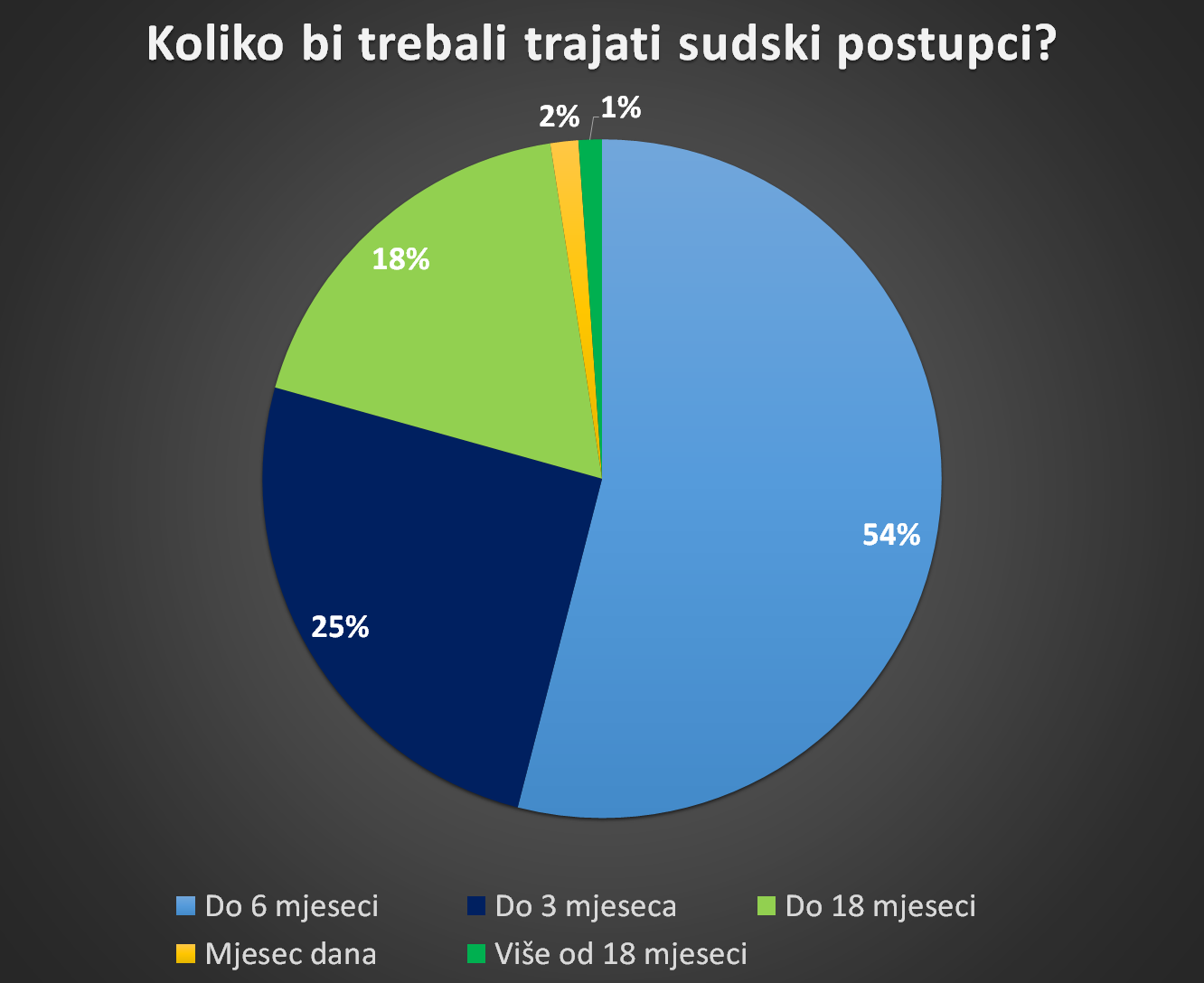
With the question, “What is the Croatian justice system’s biggest problem?” we checked why the results are so bad. We got the following answers: Just under 11% think that the reason is a particular element — corruption. About 9% believe that the reason is general inefficiency, and over 3% believe the reasons are political pressures and the slowness that favors the legal framework. Interestingly, less than 2% of respondents added the lack of funds and ignorance, as the answers. We are left with the answer with the highest percentage of votes, more than 70%, which says that all of the above is the cause of the problem and that it makes no sense to single out something individually. According to previous results, a negligible 0.2% believe that there is no problem.
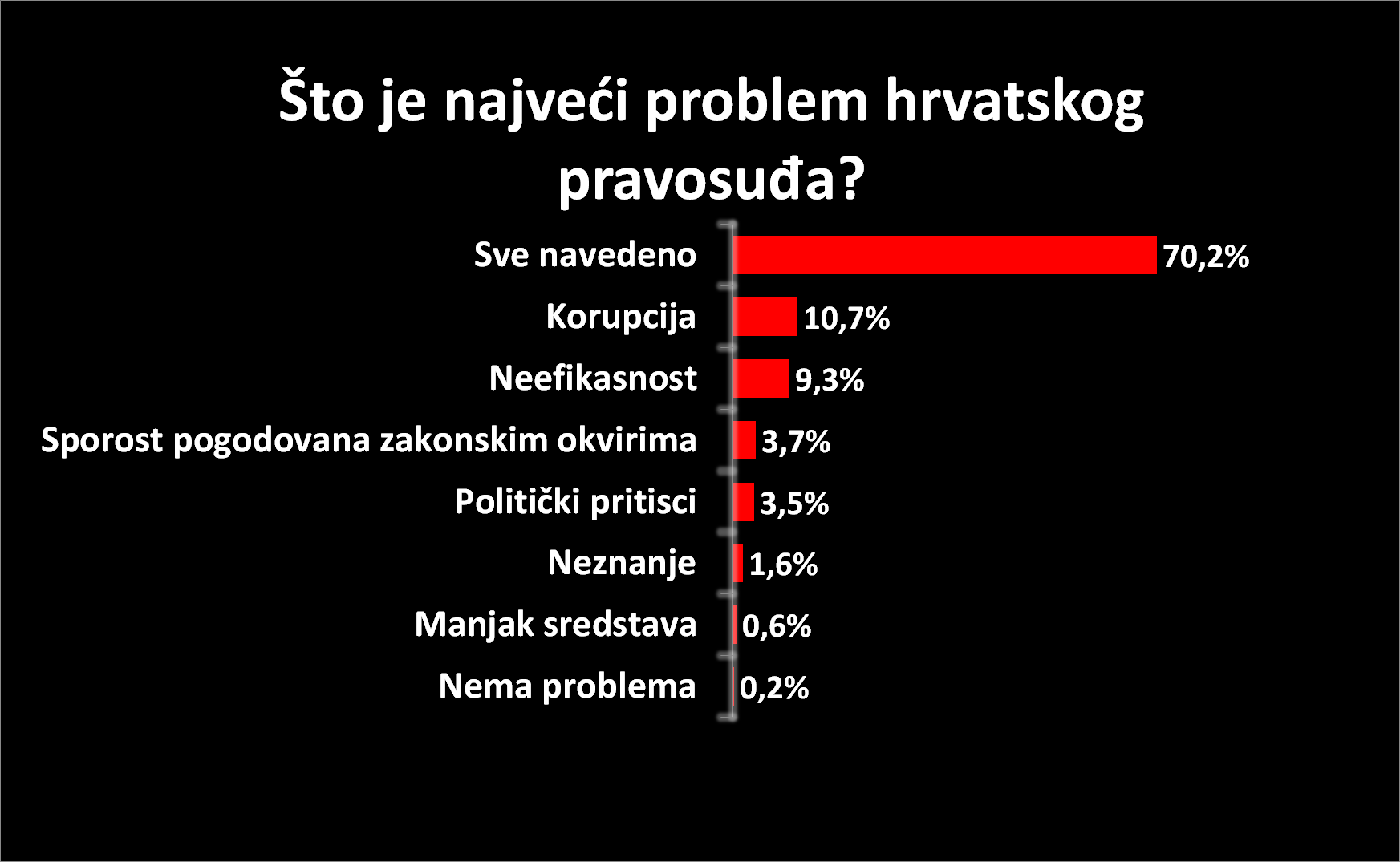
Additional information about a burning issue and what should be addressed first in some reforms, we got with the question, “What should be resolved first in the judicial system?”
Almost 61% of respondents believe that it is corruption. The second answer in size is speed, chosen by about 16% of respondents. About 12% of respondents think that all of the mentioned should be addressed along with many other things.
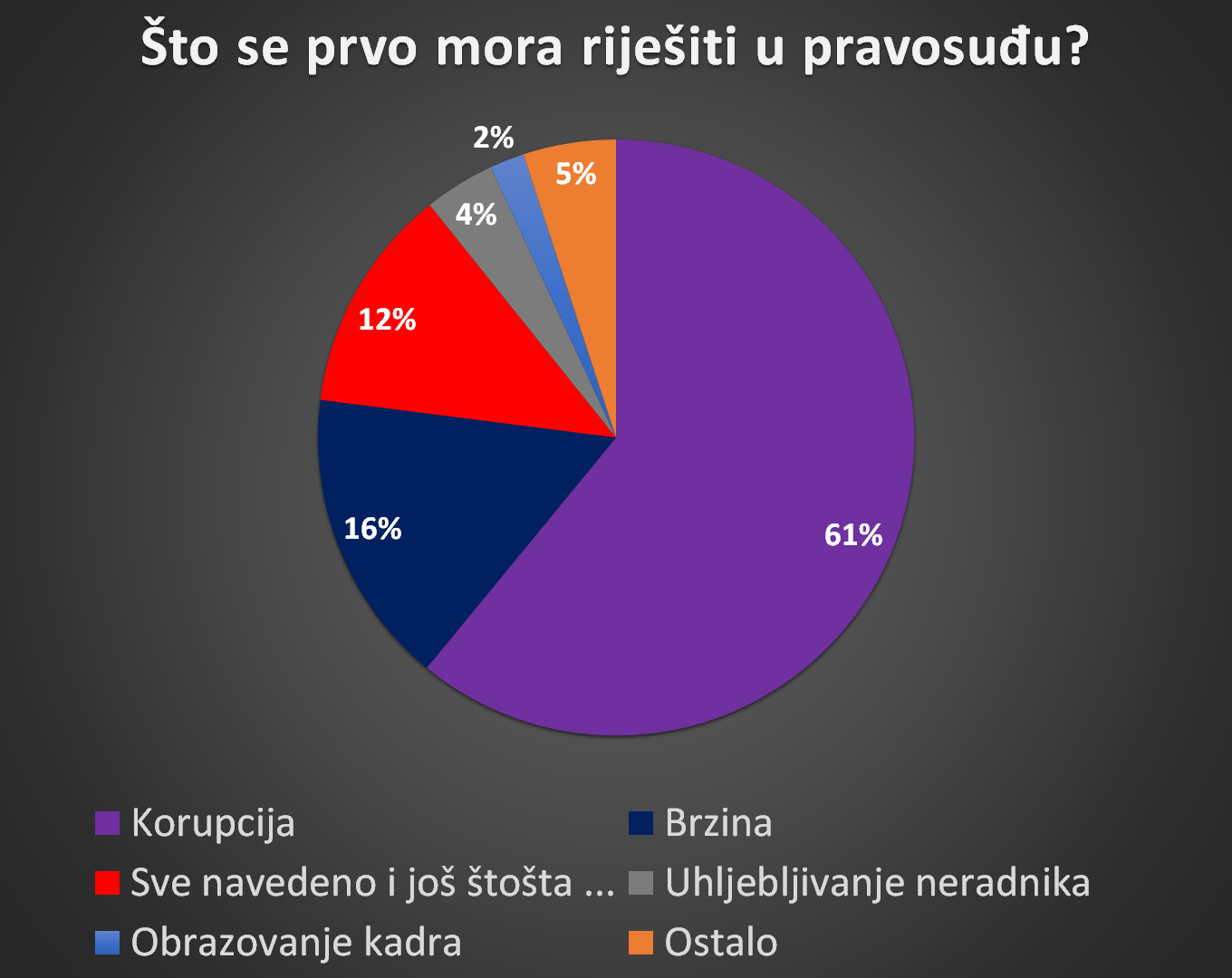
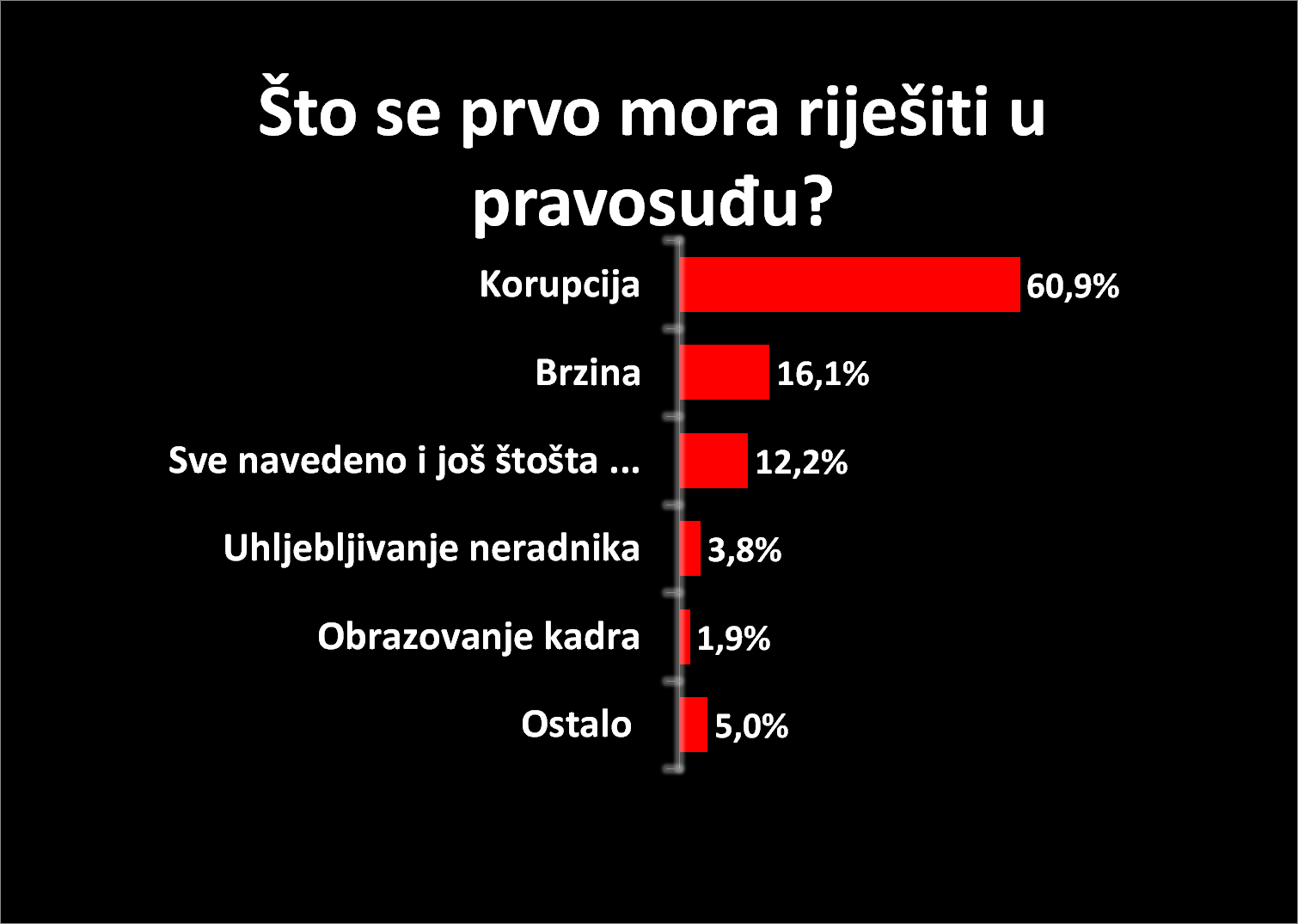
And the last part of the picture of Croatian justice is the perception of whether any changes are taking place. We asked our members if there are any reasons for hope and positivity, “How has the Croatian justice system been in the last few years?” We hoped to find at least the hints of a positive trend. Here are the answers: The most significant number of respondents — almost 58% believe that the condition is nearly as bad, and there are no changes. A great 39.5% believe that even this awful situation is not stable, but rather that things are getting worse and worse. Only 1.3% think that we are making progress, but not enough. And alone again, negligible 0.2% believe that the justice system is getting better and more effective.
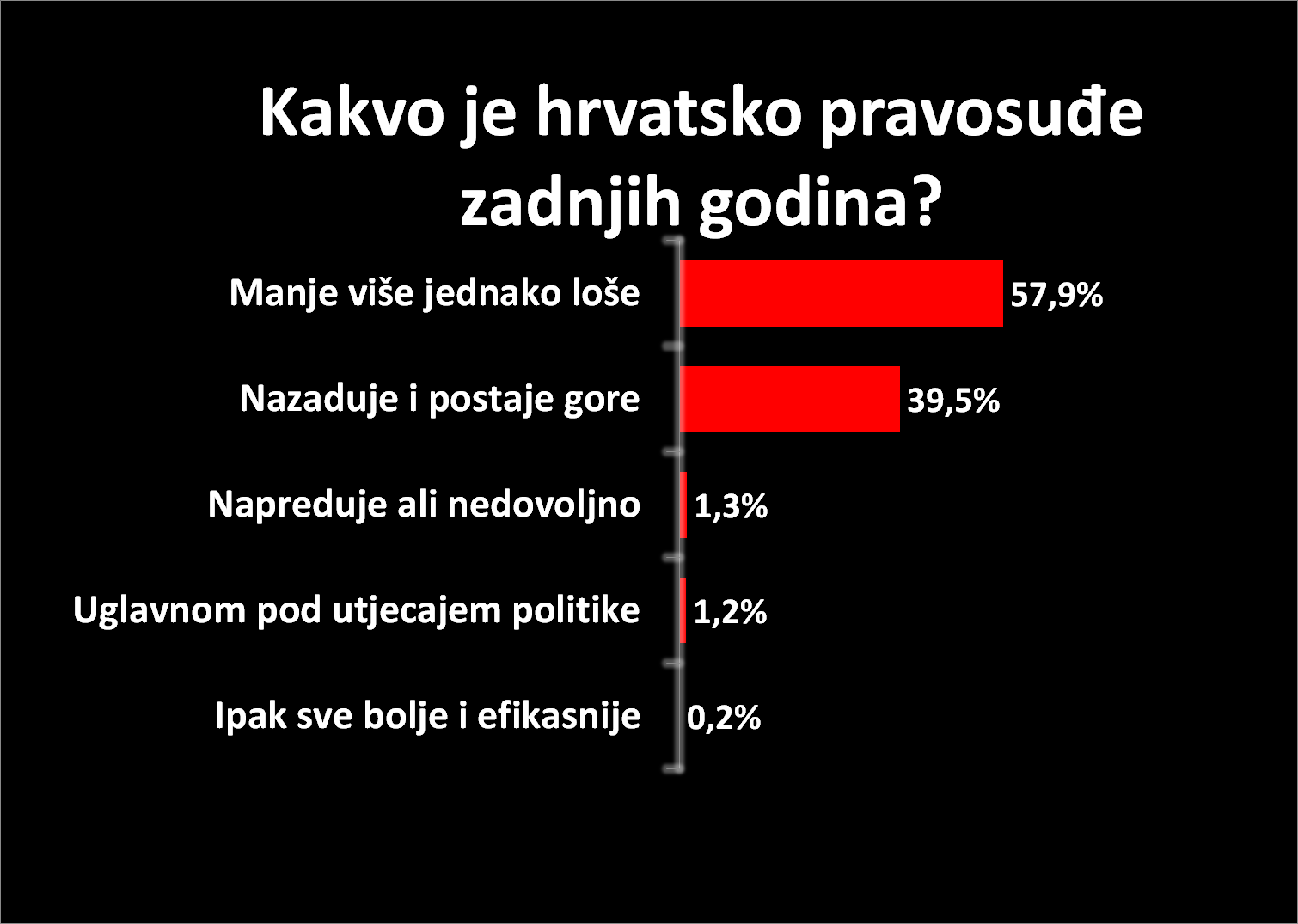
The conclusion is that Croatian entrepreneurs, who barely survive anyway, have very little confidence that the judicial system will help them professionally, objectively, and effectively. Given the speed of activities in the business world, the slowness of the legal system is catastrophic, and fewer people are counting on it. The main problem is corruption, more precisely the perception of corruption in the justice system, and hopelessness because things do not improve, and even go backward from year to year. The examples we got when doing surveys are numerous, and many of them sound unbelievable. For all these reasons, it is clear how the Glas poduzetnika Association will advocate for significant reforms and changes in the judicial system’s work. Without it, as an integral part of the reforms that we demand, it will not be possible to ensure prosperity in the state because we want to see Croatia 2.0 as soon as possible!
“Justice system as the gangrene of the Croatia society is a phrase that has been used in the public space ever since the foundation of Independent Croatia. It’s been used so much that it has lost its force at the same time, but unfortunately not the meaning and truthfulness.
By everything we’ve been served for many years, it appears that justice reform is an impossible mission, and the goal may not be easily achievable, but it is feasible. Many states we try to look upon achieved it before us. That cannot be done without a clear plan, decisions, and deadlines for their implementation, which would lead us to open the same subjects on some future elections again. UGP will closely monitor the politicians’ work and their public actions to influence the judicial system to stop being mentioned in a negative context.” said Hrvoje Bujas, president of the Glas Poduzetnika Association.










